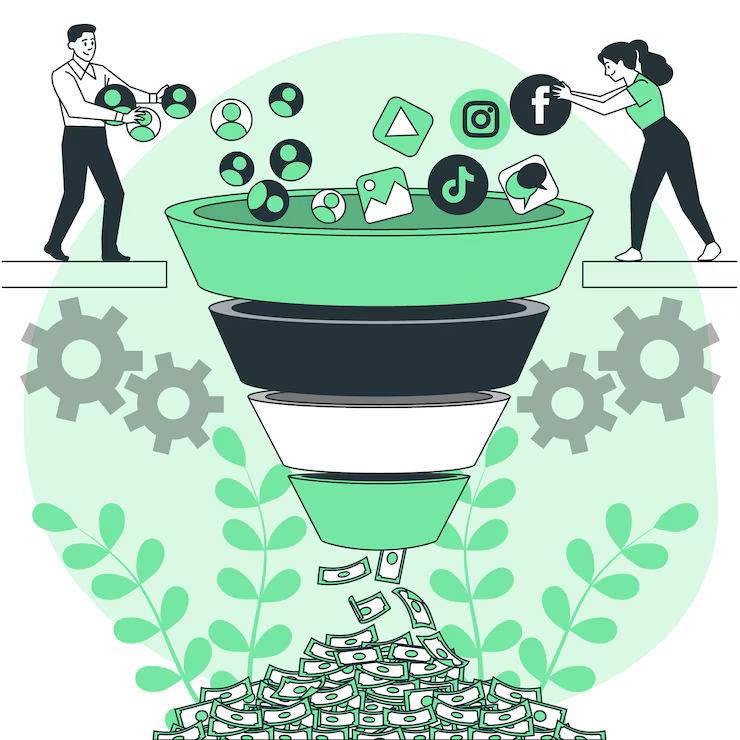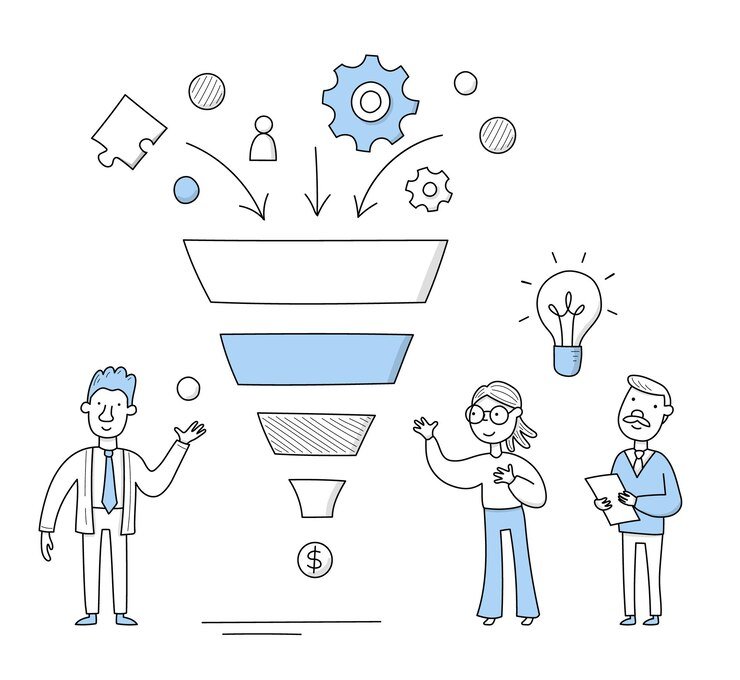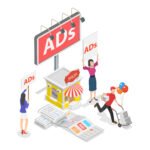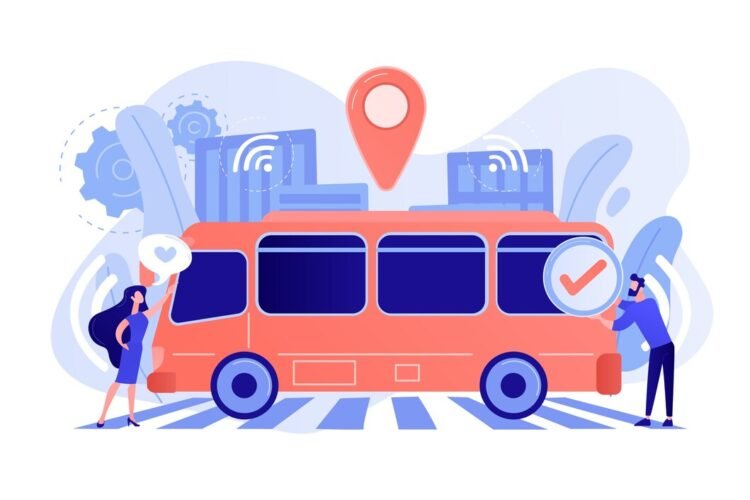
In today’s digital landscape, businesses must find strategic ways to attract, engage, and convert potential customers. One of the most effective methods for achieving this is by implementing a digital marketing funnel. This structured approach allows businesses to guide their audience through a seamless journey, from discovery to purchase, while ensuring maximum engagement and conversion. In this blog, we’ll explore why every business needs a digital marketing funnel and how it can help drive success.
What is a Digital Marketing Funnel?
A digital marketing funnel is a step-by-step model that represents the different stages a potential customer goes through before making a purchase. It is designed to guide prospects through a journey, starting with brand awareness and ending with conversion or even brand loyalty. The typical stages of a digital marketing funnel include:
- Awareness – The prospect becomes aware of your brand or product.
- Interest – The prospect shows interest in what you offer by engaging with your content.
- Consideration – The prospect evaluates your product or service against competitors.
- Conversion – The prospect makes a purchase or completes a desired action.
- Loyalty – The customer continues to engage with your brand, leading to repeat business.
Each stage requires a different approach in terms of content and engagement to ensure that prospects move smoothly through the funnel.
Why Every Business Needs a Digital Marketing Funnel
1. Structured Customer Journey
A digital marketing funnel provides a structured path for potential customers, allowing you to guide them through the stages from awareness to conversion. Without a clear funnel, prospects may lose interest or get confused, resulting in missed opportunities. A well-designed funnel keeps your marketing efforts focused and ensures that you’re nurturing leads at every stage of the journey.
2. Maximizes Lead Generation
Attracting new customers is one of the primary goals of any business. A digital marketing funnel helps businesses generate leads by building brand awareness and driving traffic to your website or social media channels. Through content marketing, SEO, social media, and other strategies, you can capture the attention of potential customers at the top of the funnel and guide them down toward conversion.
3. Improved Conversion Rates
By understanding your audience’s needs at each stage of the funnel, you can create targeted marketing strategies that resonate with them. This personalized approach helps build trust and credibility, which in turn leads to higher conversion rates. Instead of targeting all prospects with the same message, you can segment your audience and provide content tailored to their stage in the funnel, increasing the likelihood of conversion.
4. Better Customer Engagement
A digital marketing funnel allows businesses to engage with customers more effectively at different touchpoints. For example, during the awareness stage, you can offer informative blog posts or videos that educate your audience. In the consideration stage, you might provide testimonials or product comparisons. By offering valuable content at each stage, you keep prospects engaged and nurture them toward making a purchase.
5. Trackable and Measurable Results
One of the biggest advantages of a digital marketing funnel is that it provides measurable results. You can track customer behavior, analyze data, and monitor key performance indicators (KPIs) at every stage of the funnel. This allows you to identify which strategies are working and which need improvement. By leveraging data-driven insights, businesses can optimize their marketing efforts for better performance and return on investment (ROI).
6. Builds Brand Loyalty
A successful digital marketing funnel doesn’t stop at the point of purchase. The final stage, loyalty, focuses on retaining customers and encouraging repeat business. By continuing to engage with your audience through email marketing, exclusive offers, or personalized content, you can foster strong relationships with your customers and turn them into brand advocates. Brand loyalty not only boosts customer retention but also leads to positive word-of-mouth marketing.

7. Cost-Effective Marketing
Compared to traditional marketing methods, a digital marketing funnel is a cost-effective way to attract and convert customers. By using targeted strategies such as social media ads, email marketing, and SEO, businesses can reach their ideal audience with minimal spend. Furthermore, by nurturing leads throughout the funnel, businesses can ensure that their marketing budget is being used efficiently to drive the highest possible return.
How Braion Can Help
At Braion, we understand the importance of creating a robust digital marketing funnel for your business. Our team specializes in crafting customized marketing strategies that guide your audience through each stage of the funnel, from generating awareness to building loyalty. We offer a wide range of services, including SEO, social media marketing, and content marketing, designed to maximize engagement, conversions, and long-term growth.
Conclusion
A digital marketing funnel is essential for any business looking to attract new customers, boost engagement, and increase conversions. By providing a structured path for prospects to follow, businesses can ensure that their marketing efforts are targeted, measurable, and cost-effective. From lead generation to customer loyalty, a well-executed funnel helps maximize the impact of your marketing campaigns and delivers long-term success.




